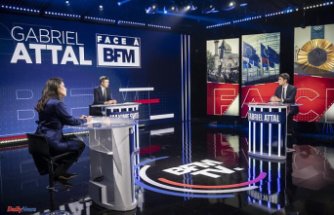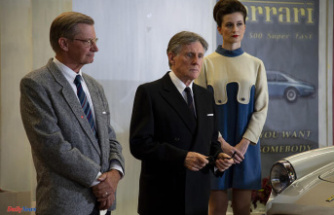publisher Viewer publishes the second volume of the 'complete Poems' by the author of 'The waste land', translated by José Luis Rey, which brings together more than half a hundred poems previously unpublished in Spanish, and where is depliega the profile more sarcastic and erotic of one of the great names of the literature
When T. S. Eliot (St. Louis, 1888-London, 1965) is installed in the poetry as a craft of life, soon realized that the world is a mental construction that it should be in a poem. Living is a state of emergency. That history is a mode like any other in order to better understand the desquicie of the time, and a balsamic proof.
Eliot was the closest thing to a prophet that he understood as nobody else, the coordinates of this and left some of its findings set out in two key books of the TWENTIETH century: The waste land (1922) and Four quartets (1943), in his farewell editorial. Before and after was putting together a writing in which the capacity of risk (and of contempt of court, and game are not ignoring the sarcasm, of eroticism, of which a lord as seriously as he would call vaguely "sin".
The editorial Viewer launched two years ago the draft set in Spanish, all writing in verse of Eliot (then there are his essays, articles, and theater). The poet José Luis Rey took on the adventure with rigour, boldness and a clear sense of the cracks, difficulties, and extravagance (also) the verse eliotiano. And now has finished off the expedition. The second volume of complete Poems contains much previously unpublished material. And not only unpublished in English, but also until recently in English. Exactly to the edition canonical by Christopher Ricks and Jim McCue for Faber & Faber in 2015, which follows Viewer for this purpose reached.
T. S. Eliot (among others) refunda modern poetry. The first reader of The waste land was Ezra Pound. To him is dedicated the book: "Il miglior fabbro". The best teacher. Eliot sent the manuscript from Paris, on his return from Switzerland, and the Pound returned it trimmed more or less in the middle. The first version had something over 800 verses. The first edition, published in 1922 by Boni and Liveright (New York) was 434, the more the notes of Eliot that were not on the advances that they offered the magazines The Criterion (of which he was a director) and The Dial. Leonard and Virginia Woolf published the first british edition in 1923. This is a book fully anticipated. And anticipatory. Almost we would say purge. Challenge. Something very rare in those who are recognized royalist in politics, classicist in literature and anglocatólico in religion. With The wasteland in the street, by T. S. Eliot is the leading poet of his generation. In this long poem, the ideas we think, not just sing. There are dating educated grafted in phrases, pastiche mixed with high literature, emotion, and darkness. A writing collage, that is the throb of time. "Son of man,/ you cannot say or maginar because you only know/ a heap of broken images".
But the poet that appears in this second installment of the complete Poems is another. The one who handles the springs on the verse with the irony ahead. The that you experience. The desacraliza. Having fun with a dash of indecency. The expanded margins of the word with a freedom made of intelligence and capacity for adventure. Not only in The wasteland. Not only in Prufrock and other observations. Not only in the Four quartets. Also on a rich repertoire of poems, loose were the workshop where he said his searches and findings. Much of that material was left unpublished. The poetic work that gave the good does not exceed 200 pages. But there was more. Much more.
The volume opens with the Book of cats skilled in the old Possum, already well known in Spain, which offers a new version based on the rhythm and the metric Spanish. From here, almost the rest of the volume is unprecedented. They include, for example, children's poems of Eliot, who invented his own journal of child and graduated To the heat of the home. Also included is the translation that made this a great poem Anábasis de Saint-John Perse. In the section titled Other verses the abundance of unpublished results equally remarkable. And there, it is worth noting the poem entitled an Invitation to all the dogs mansitos and the poor kittens. Also were unknown, until now, the texts gathered under the heading Noctes Binanianae, poems written in the heat of a round desenfada between Eliot and his close friends, which highlights the Ode to a merluzo roman.
But what is most striking is the section Rhymes indecent, where is included an epic poem-erotic-satirical titled The Colombiada, a peculiar version obscene of the feat of Christopher Columbus: "And in the end columbus and his ships/ returned to the bank of Spain./ The ladies Spanish rose aboard/ two on two, three on three, four on four."
In the texts of circumstance is hosting a good part of the irony as the singular of Eliot, inherited from his readings of Jules Laforgue. This set provides a more comprehensive perspective of his ideas and poetic bulking literary figure of one of the poets western most important of the century XX, next to Rilke and Juan Ramón Jiménez, for example. Creators of a galaxy of its own. Eliot is one of the best intelligences of poetry for his precise vision lyric of a world between the speed and the hopelessness.
Poem: 'I'm Not here to see Shakespeare nor Napoleon,'I'm Not here to see Shakespearer or Napoleon,
I'm not here to see Lincoln or George Washington.
I Paid a lot in advance,
so we come to an agreement:
I want to see the boxer Jac Johnson to ask for my money.
author's Note: 'Written in a hurry in two minutes by T. S. Eliot after a Meeting of the Reading Committee of Faber & Faber to study a request to publish a manuscript spiritualist Richard de la Mare, march 12, 1952'
According to the criteria of
Learn more Date Of Update: 07 December 2018, 08:01











